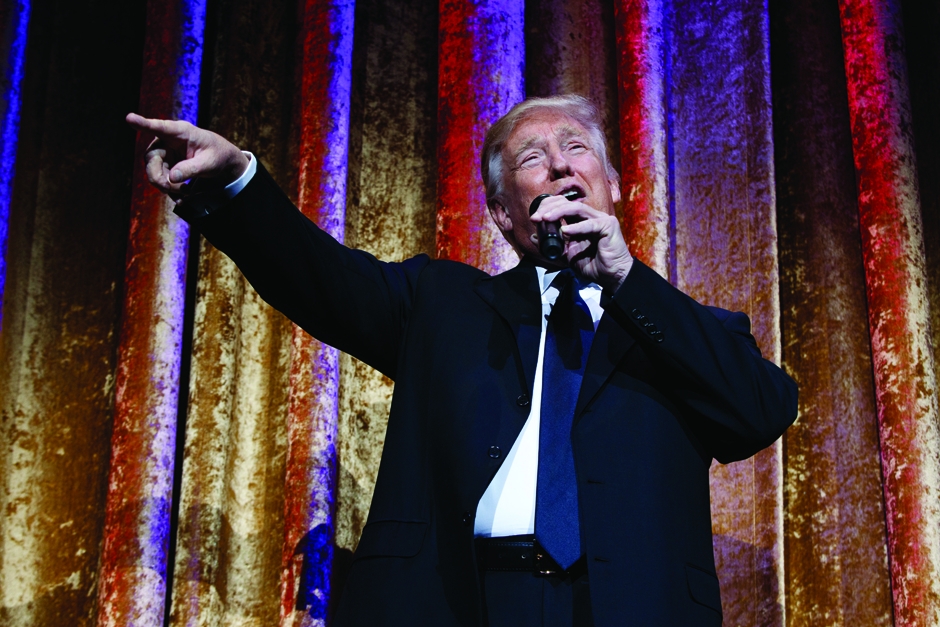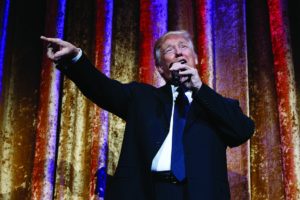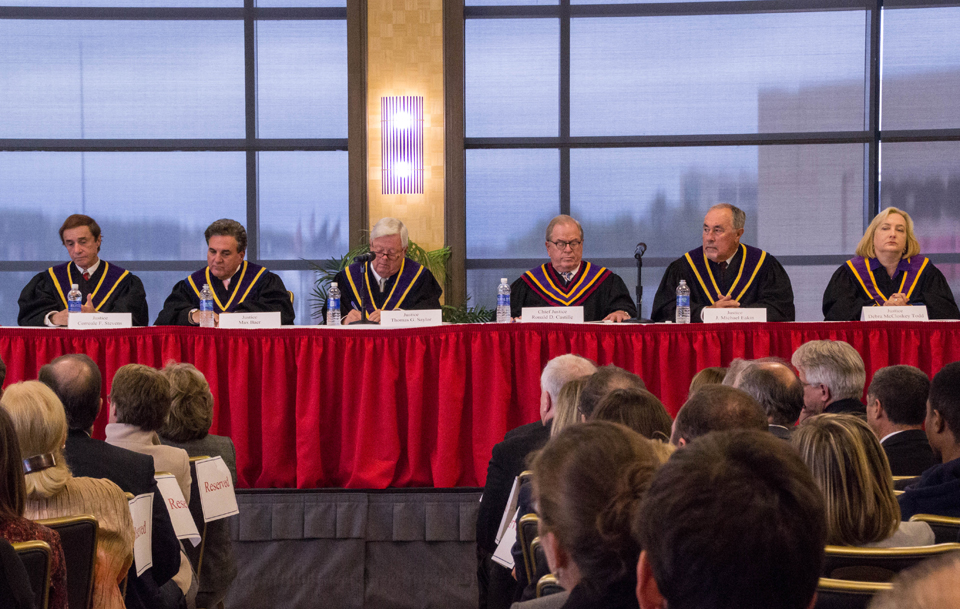
By Zachary Landau | Asst. A&E Editor

If you have kept away from the news recently, then you may have missed an important development in Donald Trump’s potential conflicts of interest.
Specifically, CNN reported on the night of Jan. 10 that an unverified dossier concerning Russia blackmailing our next president has been circulating in higher-levels of the federal government, and both Trump and President Barack Obama have been briefed on this memo.
In the aftermath of this report, there was a lot of discussion about what type of compromising material the Kremlin may have on Trump and whether or not more transparency was needed from the Trump camp when it comes to its finances.
It was a worthwhile conversation, with a lot of solid reporting on all sides bringing as much information to the public that they could and basing a discussion on research and expertise.
And then BuzzFeed ruined everything.
Ken Bensinger, Miriam Elder and Mark Schoofs published the scandalous report later that evening in full without verifying any sources within it. The only bit of journalism that these three did was fact check what they could (and to their credit, errors are pointed out in the article’s introduction) and insist that the report is unconfirmed.
The question on everybody’s lips in the aftermath was, why? Why publish an unconfirmed, unsourced story? Well, according to the original post, “BuzzFeed News is publishing the full document so that Americans can make up their own minds about allegations about the president-elect that have circulated at the highest levels of the U.S. government.”
Oh dear.
I think it is fair to say that this was a poorly thought-out reason to publish damning, unverified sources. Even if one disregards the content, it is completely irresponsible for BuzzFeed to put unproven information out to the public just so it can present the facade of transparency.
However, there can be a case made that this was not that terrible of an idea. At the very least, what BuzzFeed did is not the death knell of journalism as some people are making it out to be.
First, however, it cannot be understated just how bereft of common sense BuzzFeed must be. Publishing an unverified text is ridiculous for any journalist regardless of outlet. For one, it barely qualifies as journalism.
“Journalists,” as journalism professor Robert Healy stated, “are supposed to take information, fact check that information, present it in a digestible, readable way with some context to it that helps the audience not only understand the news in general… but also help them interpret it. So BuzzFeed did nobody any good.”
It would also be callous not to mention the damage it does to the wider industry. Legitimate outlets with standards are now being tarred with the same brush used against BuzzFeed. We saw that at Trump’s press conference the Wednesday after: He dismissed Jim Acosta from CNN because, as the president-elect claims, his network produces “fake news.” This is dangerous precedent, and Trump could easily revoke the press pass for CNN or anyone he disagrees with. This whole affair legitimizes the critique that mainstream media has a liberal bias and is out to get Trump.
But then again, wasn’t that always the case?
This is where the issue gets kind of tricky. The only people who believe that BuzzFeed represents all forms of traditional journalism are those who do not believe in journalism as an institution already. These mewling simpletons, which compose a vast majority of Trump supporters, already believe in a massive liberal-media conspiracy; what difference does one blog make? And for those of us with higher thinking skills than a rhesus monkey with a nail hammered in the base of its skull, we already know that BuzzFeed isn’t a legitimate source of news and regard the report with hefty, healthy skepticism.
And what if this report is true? One of the most frustrating parts of covering Trump as a journalist is that he resists being held accountable. He dictates the narrative, and journalists cannot keep up with the amount of contradictions and lies that come from his mouth.
By putting this report out without any filtration, BuzzFeed pulls the rug from underneath Trump, leading him into emphatically denying something that may later turn out to be true. It gives the public time to do what BuzzFeed hoped for: form their own opinion, a terrifying prospect for someone so obsessed with his image. And it is not as if Trump has had any worse allegations thrown at him. This is the man that heard a celebrity condemn making fun of disabled people and readily admitted they were talking about him. There are few lower in the hierarchy of shame than Trump.
Does this justify what BuzzFeed did? No, absolutely not. The fact that no one from BuzzFeed has discussed the moral concerns surrounding this incident in its fallout is pitiful in how narrow-minded it makes them seem (and the tat with “Failing Pile of Garbage” is disgusting in how gosh it is).
Furthermore, any potential good this incident could produce is fruit of the poisoned tree. Margaret Jones Patterson, a Duquesne journalism professor, cautions against any pretense that BuzzFeed represents a changing standard for journalism.
“People are very upset right now, or they’re very disturbed,” Patterson explained. “And if we believe in reason, we need to stay reasonable.”



